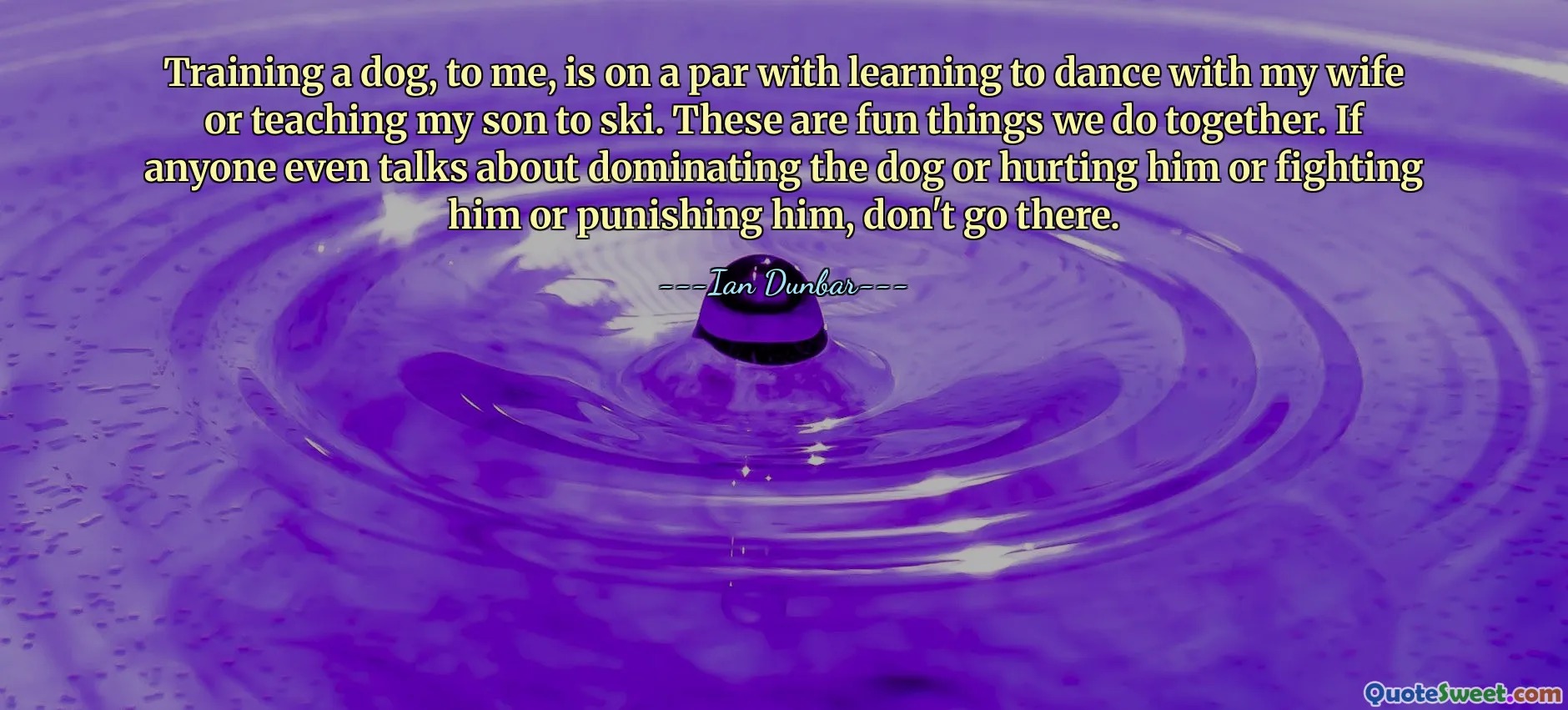
Training a dog, to me, is on a par with learning to dance with my wife or teaching my son to ski. These are fun things we do together. If anyone even talks about dominating the dog or hurting him or fighting him or punishing him, don't go there.
This quote highlights the importance of treating dog training as a joyful, cooperative experience rather than one rooted in dominance or punishment. It emphasizes the value of building a positive relationship with a pet through shared activities that foster trust, understanding, and mutual enjoyment. When considered alongside human activities like dancing or skiing, dog training becomes more about connection and partnership, transforming it from a means of control to an act of companionship. Such an approach promotes compassion, patience, and consistency, ultimately leading to a happier and more obedient dog. The negative view of punishment or dominance—often the default in traditional training methods—is dismissed here in favor of a compassionate, respectful approach. This perspective encourages trainers and pet owners to view dogs as sentient beings who thrive on positive reinforcement and engaging activities. It underscores the notion that fostering a relationship based on cooperation enhances the bond, making training sessions more enjoyable and effective. By promoting empathy and mutual respect, this philosophy aims to improve not just obedience but overall well-being for the dog and happiness for the owner. Such principles are crucial in shaping modern, humane, and effective dog training practices, aligning our treatment of animals with our values of kindness and understanding.











